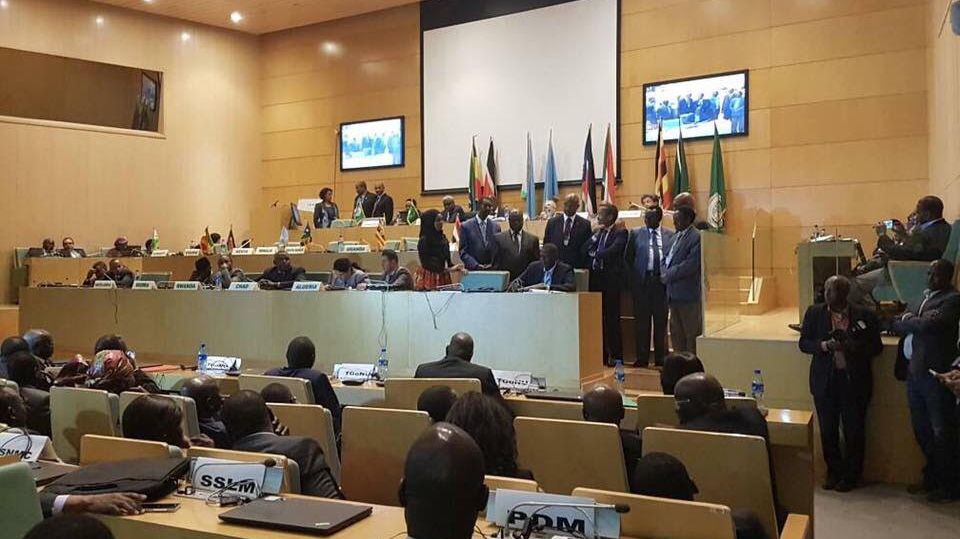UNHCR welcomes accord to revive S. Sudan peace process
December 23, 2014 (JUBA) – The United Nations Refugee Agency, (UNHCR) has welcomed the recent agreement by the South Sudan government and opposition groups to revive the stalled peace process calling for the inclusion of refugees in shaping the destiny of the country.

‘‘The latest initiative comes as a ray of hope for South Sudanese who have witnessed the ravages of war since 2013,’’ said Arnauld Akodjenou, the UNHCR special envoy for the South Sudan situation.
He said he hopes South Sudan will achieve peace and that parties will not dash the hopes of millions who have endured suffering for long.
“We are calling for unreserved support to translate this agreement on paper into silencing the guns throughout South Sudan,” added Akodjenou.
UNHCR said it is particularly heartened that the agreement upholds the rights of the South Sudan refugees and those displaced inside the country with references to assure the civilian character of settlements, urging the parties to actively pursue solutions on their behalf.
South Sudan’s warring factions signed a new agreement to cease military hostilities and protect civilians in the latest effort to calm a devastating civil war.
The ceasefire, according to the deal, will take effect from Sunday morning.
Representatives from South Sudan’s Transitional Government of National Unity (TGoNU) and the armed opposition faction were present at the signing of the ceasefire deal in Addis Ababa, Ethiopia.
The United States, Britain and Norway issued a statement welcoming the agreement and congratulated the parties on their “willingness to compromise for the benefit of the people of South Sudan.”
South Sudan, the world’s youngest nation, descended into violence in mid-December 2013 after political dispute between President Salva Kiir and the country’s former vice-president, Riek Machar.
However, the 2015 peace agreement signed to end the conflict did not hold after renewed outbreak of violence in July 2016 forced Machar to flee the capital, Juba.
(ST)
